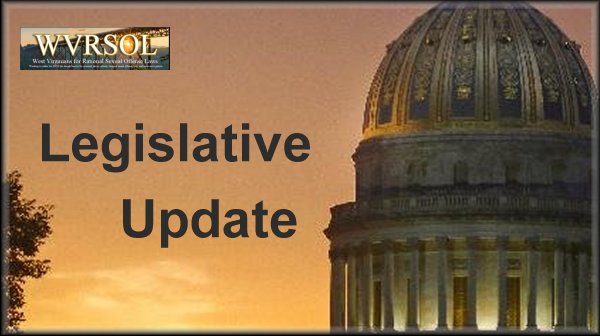By Philip . . .
WVRSOL opposes HB 2380 with written testimony. House Republicans ( Westfall, Queen, and Hott) introduced HB 2380 a BILL to amend the Code of West Virginia, 1931, as amended, by adding thereto a new section, designated §17-29-19, relating to banning convicted sex offenders from operating buses, limousines, amusement rides, and taxicabs, including Uber/Lyft ride-sharing services. The BILL is currently pending and assigned to House Judiciary Committee.
WVRSOL opposition testimony is as follows…
WVRSOL opposes HB 2380 because it is unnecessary, creates constitutionality issues, and contains non-related/missing content.
HB 2380 is unnecessary because
- Chapter 17 Article 29 Section §17-29-13 the “Transportation network company driver requirements” sub-paragraph (b)(3) already forbids registrants from operating said vehicles if they are “… a match in the National Sex Offender Registry database” (West Virginia Code 17-29-13, n.d.).
- What specific additional provisions do the proposed new section §17-29-19 provide over what current Section §17-29-13 stipulates?
- The new proposed section §17-29-19, specifically sub-paragraph (3) “Provide or offer to provide any type of service in the residence of another person,” addresses a non-existent problem. There is zero empirical evidence that registrants providing any residential services pose any greater risk than non-registrants. Regardless, aren’t nearly all residential service providers supervised by a resident except in edge-case emergencies—how exactly do they pose a danger or threat that requires legislation to manage?
HB 2380 raises constitutionality issues
- The Due Process clause to the 5th Amendment of the U.S. Constitution stipulates, as do many court rulings, that an extremely unclear statute does not give the people sufficient or fair notice of what the law requires and therefore is constitutionally void for vagueness (U.S. Constitution – Amendment 5, 1791).
- The “void-for-vagueness doctrine” requires first that a statute must be clear enough for those subject to it to understand what conduct would render them liable to its penalties. The standard for determining whether a statute provides fair notice is “whether persons of common intelligence must necessarily guess at [the statute’s] meaning” (Galloway v. State, 781 A.2d 851, 2001).
- Neither the new section §17-29-19, nor Chapter 17, nor Article 29 defines what precisely is meant by “any type of service” as set out in sub-paragraph (3), which reads, “Provide or offer to provide any type of service in the residence of another person.”
- If I’m a registrant and offer to or service my father’s garbage disposal, am I in violation of this new section?
- What if I offer to or enter my friend’s house to feed his cat while he and his family are on vacation; is that a violation as well?
- How about registrants who earn a living and contribute to society as a handyman, contractor, electrician, plumber, dishwasher installer, internet installer, etc., etc.?
- Not to mention, registrants that own rental property; can they never inspect their properties again?
- Neither the new section §17-29-19, nor Chapter 17, nor Article 29 defines what precisely is meant by “any type of service” as set out in sub-paragraph (3), which reads, “Provide or offer to provide any type of service in the residence of another person.”
HB 2380 has non-related/missing content
- New proposed section §17-29-19, specifically sub-paragraph (3) “Provide or offer to provide any type of service in the residence of another person,” is non-relevant. What does “… provide any type of service…” have to do with the new section’s purported purpose, which is to “prohibit registered sex offenders from being able to operate buses, taxi cabs, ride-sharing services, limousines, and amusement rides?”
- Moreover, the proposed new section §17-29-19 is missing content; specifically, what if any penalty is assigned to violate the provision proposed in the new section §17-29-19?
WVRSOL supports legislation that actually works to reduce sexual offenses, help children and families, and improve public safety. HB 2380 does none of these things. We oppose and respectfully urge the House Judiciary Committee to reject HB 2380, and if deemed necessary, amend it to address the issues mentioned above.
Works Cited
Galloway v. State, 781 A.2d 851, 21, Sept. Term, 2000 (Court of Appeals of Maryland September 19, 2001). Retrieved February 27, 2017, from https://www.courtlistener.com/opinion/1494306/galloway-v-state/
U.S. Constitution. (1791, December 15). Retrieved March 3, 2021, from http://www.usconstitution.net/xconst_Am5.html
West Virginia Code 17-29-13. (n.d.). West Virginia Code. Retrieved March 4, 2021, from https://code.wvlegislature.gov/17-29-13
View/download WVRSOL testimony



